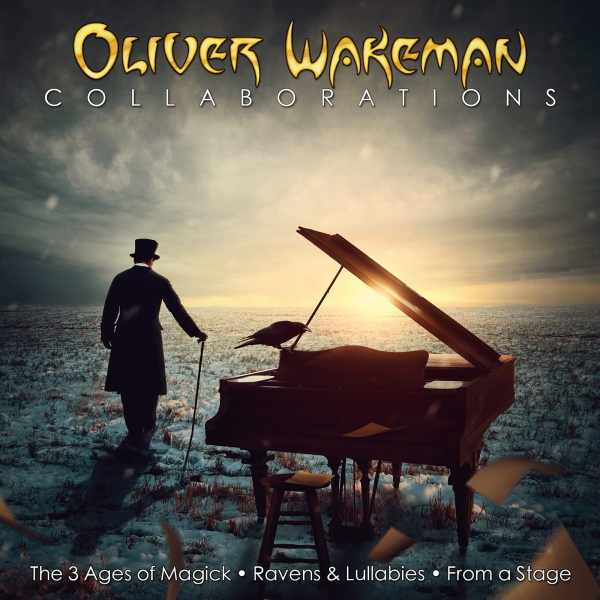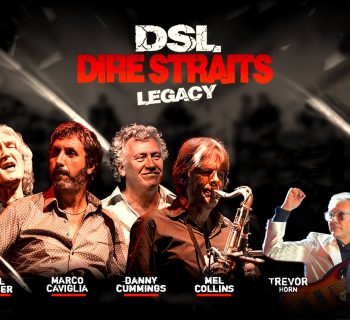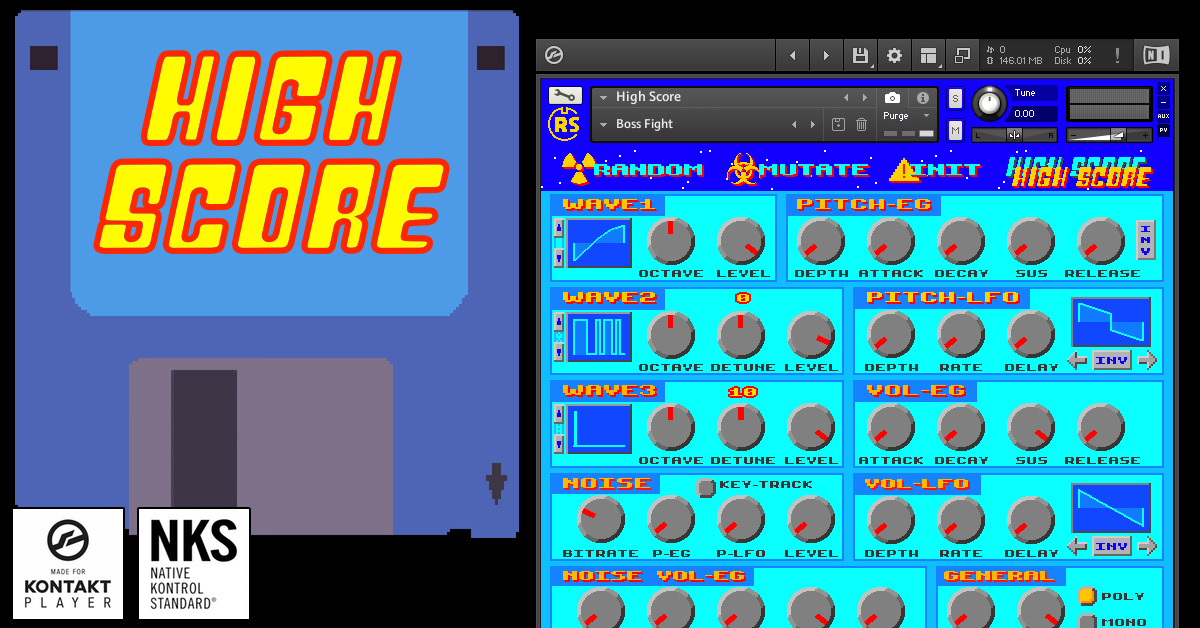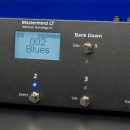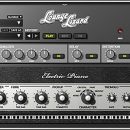LITTLE STEVEN NEW ALBUM, SOULFIRE, OUT TODAY
"It's hard to imagine a more joyous and revelatory contemporary blue-eyed soul recording.
The appropriately titled Soulfire is a tough, tight and clearly inspired project as well as a most welcome
return from the musical shadows for Steven Van Zandt."
-American Songwriter
Little Steven's eagerly anticipated new album, SOULFIRE (Wicked Cool/Big Machine/Ume) is out today. SOULFIRE is Stevie Van Zandt's first solo album in close to two decades and without question his purest and most uniquely personal artistic statement thus far. The album sees the rock legend revisiting songs that span the length of his career as artist, performer, producer, arranger, and songwriter, focusing directly on the hugely influential "soul horns-meet-rock 'n' roll guitars" approach he first pioneered on Southside Johnny and the Asbury Jukes' classic first three albums. SOULFIRE is available here: https://ume.lnk.to/LittleStevenSoulfire
Each of Van Zandt's prior five solo albums had seen him expressing his utterly personal songwriting through a changing variety of sounds and approaches, an ambitious adventurousness that has fueled much of his creative output these past two decades. He expanded his parameters, as an actor on The Sopranos and Lilyhammer, as host, historian, and rock 'n' roll advocate on Sirius XM's one-and-only "Little Steven's Underground Garage" (not to mention creator of Sirius XM's long-running "Outlaw Country" format). Van Zandt kept his skills sharp by composing the score for all three seasons of Lilyhammer and continued to work as producer and songwriter, lending his distinctive craft to records from an array of international garage rockers, but couldn't kick a lingering sense of unfinished business.
"I felt a bit guilty about having walked away from Little Steven the artist," he says. "I left that part of myself behind and I shouldn't have done that. I let the material down by not continuing to perform it," he says. "I betrayed the work and I want to fix that. I didn't give up on the material - there were a lot of other factors - but I do have a sense of wanting some redemption for it."
Van Zandt - who will remain a touring and recording member of The E Street Band - is now looking forward to hitting the road with his own big band. Little Steven and the Disciples of Soul will celebrate SOULFIRE with an epic international tour schedule, with headline gigs and festival dates around the world. A full-scale North American headline tour will be announced soon - for regular updates and ticket information, please visit http://littlesteven.com/index.php/tour-dates.
SOULFIRE TRACK BY TRACK:
1. "Soulfire" (co-written with Anders Bruus of The Breakers) "Doing the radio show keeps you very much in tune with what's going on in the world of rock 'n' roll. It's not the
real world, we live in a completely parallel universe, but we've broadcast over 700 new bands in the past 14 years. A lot of them we signed to my Wicked Cool label, like The Breakers, who are a very good band from Denmark. This was a way of exercising my songwriting muscles at that time. I try to live with purpose, and that includes songwriting. I don't get up every day and write a song just to write a song, I have to have a specific reason for it. So if I'm producing a band and I feel they need a little something extra or something specific, I'll write it for them, or in this case, with them. To some extent, that's what kept my songwriting alive over these past years."
2. "I'm Coming Back" (Originally found on Southside Johnny and The Asbury Jukes' 1991 LP, BETTER DAYS) "I did their first three albums in 1976, 1977, and 1978 but then we didn't work together for another 15 years. The lyrics were perfect for Southside at that point and they work for me, at this point. It's one of my favorite lyrics that I've ever written."
3. "The Blues Is My Business" (Written by Kevin Bowe and Todd Cerney, recorded by Etta James in 2003) "I've never recorded a real urban Southside-of-Chicago blues thing before. I went though a blues period growing up but by the time I got to the recording studio, I'd kind of gone in a different direction. We worked it out for BluesFest and I liked the arrangement so much, we recorded it for the album."
4. "I Saw The Light" "I had half-written it for Richie Sambora & Orianthi but the next time I talked to him he had already written 40 songs so I didn't bother finishing it. I came across it as we were making my album and thought, I like this, maybe I'll finish it for me."
5. "Some Things Just Don't Change" (Originally found on Southside Johnny and The Asbury Jukes' 1977 LP, THIS TIME IT'S FOR REAL) "One of my favorites. I wrote it with David Ruffin and The Temptations in mind. I was basically trying to write a classic Motown song. It can be an interesting artistic challenge writing for other people. As third generation rock 'n' rollers we grew up post-show business. It was art form by then, very autobiographical. That's one of the reasons for its success as an art form, people relate to rock 'n' roll in a personal way. So part of you wants to write something traditional, something classic, but part of you always wants to keep it very personal."
6. "Love On The Wrong Side of Town" (Co-written with Bruce Springsteen and originally found on Southside Johnny and The Asbury Jukes' 1977 LP, THIS TIME IT'S FOR REAL) "Bruce had the riff and I did the rest. When you wrote, arranged, and produced the original versions, it's not always easy to redo them. They become definitive. You did it that first way for a reason. I found it difficult to do much with this one but when we got to the end of the song I found an opportunity to change it up a little bit. I changed little things here and there on all the songs on the album but it definitely took a minute."
7. "The City Weeps Tonight" - "It was going to be the first song on my first solo album. I was going to do a chronological history of rock 'n' roll with my own records but the concept changed and I got political. It remained three-quarters finished all these years, but I always liked it. I love doo-wop so this was a great way to get that onto the record."
8. "Down and Out in New York City" (Written by Bodie Chandler and Barry De Vorzon and originally recorded on James Brown's 1973 Black Caesar soundtrack) "I love the blaxploitation genre - we do a special on the radio show every year, the day after Thanksgiving, we call it 'Blaxploitation Friday.' My favorite has always been James Brown's theme from Black Caesar. It has the immediate common ground for me of being about New York City. We did it for BluesFest, came up with a really cool groove and a new horn line and made it our own. It has a bit of a jazzy element, which I explored with my Lilyhammer score, but like the blues song, it's unlike anything I've ever recorded before on a solo album so it was nice to get those genres onto a record."
9. "Standing in the Line of Fire" (Co-written with Gary U.S. Bonds and (L.) Anderson and originally found on Gary U.S. Bonds' 1984 STANDING IN THE LINE OF FIRE) "Gary U.S. Bonds is somebody you don't want to mess with. The records I did with him are so damn good, I thought, I can't really beat this, I need to really change it somehow. So I added a piece of music I did for Lilyhammer - now it's like Gary U.S. Bonds-meets-Ennio Morricone."
10. "Saint Valentine's Day" (Originally found on The Cocktail Slippers' 2009 LP, SAINT VALENTINE'S DAY MASSACRE) "I wrote it for Nancy Sinatra but unfortunately never did the session. I recorded it with The Cocktail Slippers, similar to the way I was going to do it with Nancy, and then David Chase liked it so we did a more rock 'n' rolly guys' version of it for his movie, Not Fade Away. For my version, I added a horn line that I think changes the whole complexion of the song, makes it more of a soul thing."
11. "I Don't Want To Go Home" (Originally found on Southside Johnny and The Asbury Jukes' 1976 debut LP, I DON'T WANT TO GO HOME) "It's the first song I ever wrote and I wanted to do it the way I'd originally imagined it. I'd spent five or six years trying to write songs but I was never really happy with them. I decided to go back and really study the roots of rock 'n' roll. To me, the beginning of rock 'n' roll songwriting was Leiber & Stoller, so I decided I'd write a Drifters song. I was on the oldies circuit at the time, playing with The Dovells, and I got to meet all of my fifties and sixties early rock 'n' roll heroes, spend some time with them. I wrote it for Ben E. King but then didn't have the courage to give it to him."
12. "Ride The Night Away" (Co-written with Steve Jordan and originally found on Jimmy Barnes' 1985 LP, FOR THE WORKING CLASS MAN; later recorded for Southside Johnny and The Asbury Jukes' 1991 LP, BETTER DAYS) "Steve Jordan came over to my house one day and said, 'I've got a Jimmy Barnes session, I promised him a song and I don't have one so I'm not leaving until we write one.' That kind of songwriting-on-a-deadline goes back to Leiber & Stoller as well - I love that whole Brill Building thing, I wish I'd been around for that period."

